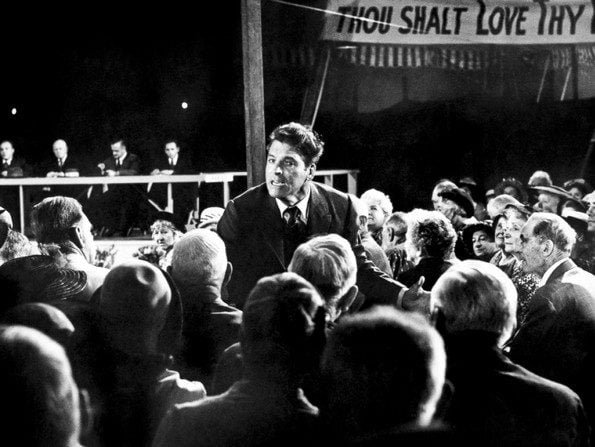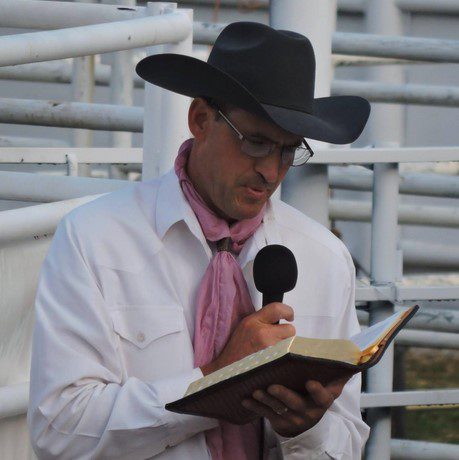
Repost from 2015. Edited, updated, and corrected.
In the first part of this series I dealt with Churches That Abuse: Why Bad people do Bad things. I wrote:
Churches attract all kinds of people with varying motivations for being part of a particular religion. I spent fifty years in the Independent Baptist/Non-Denominational/Evangelical church. When it comes to other religions, I only know what I read in the media. The experiences and observations I share in this post come from the fifty years I spent in those churches, first as a parishioner, and later as a pastor. I spent twenty-five years in the pastorate, pastoring churches in Ohio, Michigan, and Texas.
…
The Christian church often attracts people with ulterior motives. Generally, Christian people are very trusting. When someone gives a testimony of redemption, most Christians readily embrace the lost sheep that is now found. Tales of addictions, sexual immorality, prison, violence, and the like find a sympathetic ear with most Christians. The worse the sinner, the greater the testimony of God’s wonderful, saving grace.
There is no doubt that many sinful, fallen people have found deliverance through what they believe is the saving work of Jesus Christ. Many vile people now live productive, grace-filled lives as born-again Christians. They are to be commended for the changes that have taken place in their lives. While I no longer embrace the Christianity and its message of saving grace, I willingly admit that religion transforms and changes multitudes of people.
Because Christian people are trusting and accept people at face value, they are an easy mark for people who have evil intentions. In among the sheep are criminals, thieves, child abusers, and sexual deviants, to name a few. These people make an outward show of Christianity, but inwardly they are ravenous wolves seeking sheep — often children — to devour. This is true not only in the local church, but also in Christian camps, group homes, and Christian schools.
Churches make it easy for deceivers to set up camp in their midst. The deceivers quickly embrace the church family, begin to regularly attend services, and even give money to the church. They are soon embraced as brother or sister. Before too long they are given access to places of responsibility within the church. They now have access to the treasures of the congregation, be it monetary, physical, or spiritual.
In this post, I want to deal with Churches that Abuse: Why Good People Do Bad Things. This post deals with a very difficult and controversial subject. It is easy for us to understand evil actions in a church when they are committed by evil people — wolves in sheep clothing. It’s much harder for us to understand evil actions in churches when the evil is committed by individuals who are generally considered good people.
How does a good person — a pastor, deacon, or Sunday school teacher — go from a life as a devoted follower of Jesus to one of engaging in acts of abuse and perversion? It is easy to dismiss them as people who secretly were always abusers, but what if they weren’t? What caused them to turn from being a follower of Jesus to being an abuser?
I will not offer any iron-clad answers to this question. I do want to suggest that there are teachings and ideologies within many Christian groups, especially those of Evangelical or Fundamentalist persuasion, that are instrumental in turning good people into abusers. They become Good People who do Bad Things.
My focus is on Evangelicalism — the sect I am most familiar with. I could spend the next hour detailing the heinous acts of people I personally know; men and women considered to be devoted followers of Jesus who became abusers of the very people they were supposed to love and care for. If the Black Collar Crime Series has exposed anything, it has exposed the ugly reality that Evangelical churches have a big abuse problem.
I do not want this post to come off as a justification for the behavior of abusers. When 9-11 happened, our focus was rightly on the terrorists who murdered thousands of people. Over time, a few people tried to raise questions about WHY the terrorists did what they did. Sadly, many people have no interest in pondering or answering the WHY question. “Who in the hell cares WHY they did it. We know they did it, and that is all that matters.” I understand this sentiment, but refusing to ask the WHY question leaves us open to a repeat of 9-11. Understanding the terrorists’ motivations just might reduce the number of terrorist attacks going forward. Motivations matter.
Multitudes of people have gone through their own personal 9-11. They have been attacked, abused, and often emotionally and spiritually destroyed by people they trusted. Their tales of abuse are heart-wrenching, and I have no problem understanding their hatred for those who abused them. What I want to gently do is try to understand WHY the abuse happens. I will understand if you say, “Let them all rot in hell. I don’t care what their reasons were, or why they did what they did.” I have not walked in your shoes, so I have no right to tell you how you must respond to these issues. But I do think answering the WHY question is very important when it comes to reducing emotional, mental, physical, and spiritual abuse.
I spent the first fifty years of my life in the Evangelical church. I believe I can give some answers to the WHY question. I want to look behind the abuse and see what led good people to become abusers. I am convinced there are things within the DNA of Christianity that lend themselves to breeding and growing abusers, especially within the Evangelical church.
Every church and denomination has its own orthodoxy and its own orthopraxy. When trying to determine why good people do bad things, we must first look at what a particular church or denomination believes and practices. This is essential to understanding why people, in the name of God, people who are committed followers of Jesus, abuse other people, often doing despicable things to those they are supposed to love and protect.
Most Evangelical churches teach:
- The Bible is the inspired word of God and is sufficient for faith and practice. I am deliberately avoiding the various arguments about inspiration, inerrancy, etc. Every Evangelical believes the Bible, to some degree or another, is God’s truth. If he doesn’t, he is not an Evangelical.
- That what the Bible teaches is to be believed, obeyed, and practiced.
- The Bible is to be, with rare exception, read in a literal sense.
- The pastor is called by God to preach and teach the Bible to the church membership. I am well aware that a minority of churches have multiple pastors or elders, but the majority of churches are pastored by one person.
When we add these things together, we end up with sects and churches that believe everything that is written in the Bible; sects and churches that expect members to live by teachings of the Bible. They believe the most important thing in the world is to be obedient to God. They also believe that God has given them pastors to teach them and guide them in the teachings of the Bible. The pastor is the linchpin of the church. He is the main cog upon which the machinery of the church turns. It is impossible to over-emphasize the importance the pastor plays in what people believe and practice. The amount of power that a pastor has is astounding.
How do pastors gain such power over people?
People want to believe that when they go to church, they are safe. After all, they are surrounded by people who love Jesus and who seem to sincerely follow the teachings of the Bible. The “it’s what is inside that counts” sounds nice, but in most churches, everything is measured by what can be seen and experienced from the outside. If people “look” Christian then they “are” Christian. If they “act” Christian then they “are” Christian. People enter the pastor/parishioner relationship with their guard down. They trust the pastor. Surely, he has their best interest at heart.
This is why, when charges of abuse are brought against their pastor, it is hard for church members to accept that their pastor is an abuser. “He wouldn’t do such things.” “He is a man of God.” “He is kind and loving.” “He would never do anything to hurt the church or his family.” Looking in from the outside, the level of denial seems astounding, but church members are taught to be loyal. They are taught to stand firm no matter the circumstance. If they didn’t see it, it didn’t happen. (Please see Sexual Abuse and the Jack Hyles Rule: If You Didn’t See It, It Didn’t Happen.)
I know of countless church scandals where the facts of the scandal were not in dispute, yet many members refused to believe them. They steadfastly denied reality. When the late Jack Hyles, pastor of First Baptist Church, Hammond Indiana — at one time the largest church in America — was charged with infidelity, the Independent Fundamentalist Baptist (IFB) movement was divided into two groups of people: those who stood with Hyles and considered all the evidence against him to be false or circumstantial, and those who believed Hyles was guilty of the things he was accused of.
The evidence was overwhelming. I have no doubt that Hyles did what his accusers said he did. Yet, the 100%-Hyles people — those who actually wore buttons that said “100% Hyles” — won the day. Thousands of people left the church, but Hyles survived the scandal and pastored the church until his death. After his death, his son-in-law Jack Schaap pastored the church. He, too, found himself accused of sexual misconduct. Unlike his brother-in-law David Hyles, who got away with having sex with numerous female church members, (please see UPDATED: Serial Adulterer David Hyles Has Been Restored) Jack Schaap was found guilty of having sex with a minor and is now serving a twelve-year federal prison sentence.
Hyles had what we called the “Hyles Mystique.” Jack Hyles had god-like qualities. He was a super-Christian, a super-pastor who somehow got thirty or forty hours out of every twenty-four-hour day. He preached at conferences every week, preached at his church on Sunday and Wednesday, counseled dozens and dozens of people each week, and still had time to be a wonderful father and husband. His preaching was inspiring and he had command of the pulpit like few other preachers. Surely, such a man could not “sin” or “abuse” other people. I was quite the Hyles fan, but I later came to see that Hyles was a narcissist and a serial liar.
In Evangelical churches, pastors are considered to be a step above the rest of the human race. They are God-called, God-inspired men who speak on behalf of God. They supposedly have vast knowledge of the Bible and they have an answer for every question. If the God/Bible/Pastor doesn’t have the answer to a question . . . well that’s never happened.
Church members are taught that the Bible is God’s divine answer book. In the Bible, Christians will find everything they need that pertains to life and godliness. If it is not in the Bible, it is not worth knowing. Say what you will about Evangelicals, but many of them take seriously the teachings of the Good Book. They read it and study it, desiring to know how to live their lives in conformity to its teachings.
Church members are taught to NOT trust their own reasoning, nor are they are to trust the vain philosophies of this world. Out in the world, Satan walks to and fro seeking whom he may devour. This is why church members are discouraged from reading books or magazines that are not written by approved Christian authors. They dare not open their mind to the world, and by living this way, they ultimately lose their ability to rationally think and, over time, to spot error and contradiction. Skeptics do not make good Christians. The Bible, or should I say, the pastor’s interpretation of the Bible, becomes the only thing that matters. This is fertile ground for the seeds of abuse to grow and mature.
Sunday after Sunday, people gather together in Evangelical churches to listen to their pastor expound and illustrate his interpretation of the Bible. They think they are doing so with an open mind, but instead they have closed off their mind to everything except what their pastor teaches. Since he is the man of God, he is explicitly trusted by almost everyone.
Before I go on, I need to say that I think most pastors are honorable people. I think they, as I did, entered the ministry with the best of intentions. They sincerely want to help people and to instruct people how to live according to the teachings of the Bible. Regardless of my beliefs about God, the Bible, and Christianity in general, I greatly respect pastors who selflessly work hard to minister to their churches.
Most churches are pastored by one person. Churches with multiple pastors or multiple staff members make up a small number of the total churches in America. Even in large churches, with numerous staff members, there is usually one person who is THE pastor. Take a look at mega-churches. Tens of thousands of church members and dozens of staff members, yet the churches are labeled as John MacArthur’s, Rick Warren’s, Bill Hybels’ church, etc. No matter how many elders are on the board, there is no doubt whose church it is.
No matter the size of the congregation, the church revolves around the pastor. He is the head honcho, the bwana, the chairman of the board. The pastor has tremendous power granted to him by the church body. In many churches, the power that a pastor has is almost absolute. Granted, a church CAN dismiss its pastor, but rarely are disaffected church members willing to get into a turf war with the pastor. In every church there is a core group of people who are on the pastor’s side. Disaffected church members find it difficult to take on the pastor and those who support him.
As time goes on, the pastor, whether on purpose or not, tends to consolidate his power/authority in the church. He becomes the go-to man for everything, even things that have nothing to do with the Bible or the church. The pastor may even deceive himself about this. He may see this as the church and pastor maturing together like an old married couple.
I am sure you have heard the line: absolute power corrupts absolutely. Sadly, this is often the case in many Evangelical churches. Over time, the pastor becomes a monarch ruling from a throne. First Baptist Church becomes John Smith’s church. The pastor’s name is on the sign, the church letterhead, and every piece of literature put out by the church. If the church is a corporate body, with every member being an essential part, why does it matter what the pastor’s name is?
The answer is quite simple. In America we are attracted to personalities. We live in a culture that puts a great premium on star power. As a result, people view pastors as stars and personalities. As with actors, politicians, and athletes who seem larger than life, when a pastor begins to believe the hype about himself, he has taken the first step to being an abuser. Filled with pride and arrogance, the pastor begins to actually believe what people say about him. “Great sermon pastor.” You are the best preacher I have ever heard.” “What a powerful man of God you are!” “We are so glad to have you as our pastor!”
The pastor and the church are complicit in providing fertile ground for abuse to occur. While ultimately the abuser is the one who must give an account for his abuse, the church is complicit to the degree that it fails to see all people, INCLUDING the pastor, as mere humans. Pastors are capable of committing the same sins and behaving in similar ways as their congregants and non-Christians.
Trust is a good thing. Generally, we should trust one another. However, there is a difference between eyes-wide-open trust and blind trust. Closing off one’s mind to the possibility that good people can do bad things is irresponsible. Every week there are news reports of good people doing bad things. Sometimes these are bad people acting like good people doing bad things, but sometimes they really are good people doing bad things.
Good pastors are capable of doing bad things. I have pondered the WHY of this for a long time. I want to conclude this post with a few thoughts on the “why” of pastors that abuse. Why to good men do bad things?
First, they believe the hype about themselves. Pastors foolishly begin to believe the accolades that are thrown their way. Pretty soon they begin to think, I AM SOMEBODY. This is especially true if the pastor is a gifted communicator or has great people skills. They forget that Bible says pride goeth before a fall. The story of Nebuchadnezzar and his rise to power and fall should be burned into the mind of every pastor. The book of Daniel records Nebuchadnezzar saying, “Is not this great Babylon, that I have built for the house of the kingdom by the might of my power, and for the honour of my majesty?” Many an Evangelical pastor has uttered a similar statement, only to be ruined by his arrogance and pride. (Please see Tony Soprano Would Make a Good Independent Baptist Preacher.)
Second, they think they are more knowledgeable than they really are. The longer a pastor serves in one church, the more willing people are to come and talk to him about the problems they are facing. Most pastors have little or no training in counseling or psychology. Even when they do have training, most often they are trained to view the Bible as the answer to every problem. When I was a pastor, rare was the day that someone didn’t come to me and say “can we talk?” I counseled hundreds of people over the years. Evangelicals have the same problems as non-Christians do. Sometimes they have MORE problems than non-Christians, due to literalist interpretation of the Bible. The Bible does not make life easier to live. It’s commandments, rules, and regulations are often a source of conflict and psychological stress.
This is complicated further by the pastor’s interpretation of the Bible. In the hyper-fundamentalist wing of the Evangelical church, you will find lengthy codes of conduct said to be taken straight from the Bible. This code of conduct is enforced through the preaching of the pastor. (Please see An Independent Baptist Hate List and The Official Independent Baptist Rulebook.) Many times, the pastor’s own personal code of conduct is presented as the standard by which everyone else must live. After all, the pastor got it right from the Bible! (See Are Evangelicals Fundamentalists?)
As I look back over twenty-five years in the ministry, I now realize the churches I pastored had far more dysfunction than I was willing to admit. My staunch, literalist stand on the teachings of the Bible caused some of this dysfunction. Thinking the Bible is the answer to what ails us is not only ignorant, it can be dangerous. This dysfunction was furthered by my own arrogance as I allowed myself to become THE answer man. I could justify myself by saying that many of the people I pastored were lazy Christians. They were quite willing to accept whatever answer I gave them. One church member, when asked “what do you believe?” answered, “I believe whatever the preacher believes.” Brutal, but honest.
Most church members read the Bible devotionally and never spend a moment studying the doctrines they say they believe. Of course, I now see that this is essential to the long-term survival of Evangelical Christianity. Ignorance is bliss, or, in Evangelicalese, ignorance is faith. When Evangelicals embark on an intellectual journey to truly understand Christianity and its teachings, they often end up leaving the faith or embracing some form of liberal Christianity. Evangelical Christianity is not well served when looked at with the microscope of reason and fact. For this reason, pastors encourage their parishioners to read only approved books, and parishoners are encouraged to send their kids only to approved Evangelical colleges. This is vitally important for keeping the ship afloat. Non-approved books and non-approved colleges usually cause trouble and often lead to people leaving the church. Knowledge is power.
Over the years, I counseled a number of people who needed immediate psychological or psychiatric help. At the time, I despised the mental health profession. I viewed them as tools of Satan. Instead, I gave people lame, unhelpful advice from the Bible. Instead of helping them, I abused them with the Bible. Several church members had nervous breakdowns and ended up in a psychiatric hospital. I viewed this as their fault, their unwillingness to trust God and obey his commandments. Those who had a nervous breakdown later left the church. They found out that what I was selling was snake oil. I proclaimed Jesus as the cure and they found out he wasn’t.
When given the opportunity, I tell young pastors to stick to doing what they were trained to do. Leave mental health issues to the professionals trained to deal with them. The same could be said of many things pastors counsel others on without having the proper training to do so.
Third, the pastor thinks of himself as being impervious to sin. He is, after all, the man of God. He is the servant of the Most High. He has his Ephesian 6 armor on 24/7. Pastors can begin to think that they are invincible, that they are above the fray. They really should know better, but arrogance and pride blind them from seeing themselves as they really are. At this point, pastors lack self-awareness and are extremely vulnerable to self-deception and open to doing things considered sinful and abusive.
Pastors have a legal, ethical, and moral obligation to act appropriately and responsibly. The Bible, in 1 Timothy 3, sets a high moral and ethical standard for pastors, as do the laws of most states.
Here in Ohio, a pastor is considered a person of authority. He can be held criminally liable for not reporting abuse or for violating the trust of a parishioner. Let me give an example. If church member Joe has an affair with church member Sue, the Bible calls their behavior adultery. However, when a pastor has an affair with a congregant the Bible still calls the action adultery, but the law calls his behavior an abuse of authority. Countless pastors end up in prison because they ignored their moral, ethical, and legal obligations to church members.
Pastors who commit sexual sin with a church member are abusing the trust given to them by the member. The state recognizes this and accordingly criminalizes such actions, Pastors, due to the sensitive nature of their interactions with congregants, put themselves in situations where the potential for sin and abuse is great. They often see people at their worst. The conscientious pastor acts appropriately, giving what help he can and recommending secular services for those things he can’t help with. The abusive pastor sees vulnerability as an opportunity to take advantage of a church member. Such pastors are rightly considered the lowest of the low, like dog shit on the bottom of a shoe. Preying on the weak and the vulnerable might work in Darwin’s survival of the fittest, but in the church, members rightly expect their pastor to treat them ethically and morally.
Let me share a personal story that I believe will help illustrate what I am trying to say. One spring day, a young woman who used to attend the church came to my office dressed quite provocatively. Her parents still attended the church, but she had left the church, off to sow her wild oats. She had a short, tight skirt on and when she sat down and crossed her legs, she definitely had my attention. It didn’t take me long to realize what her intentions were. In her mind, the best way to get back at her parents was to screw the preacher and ruin his ministry and the church. Fortunately, I realized what was going on and had my wife come into the office with us.
In no way do I intend to present myself as a pillar of moral virtue. I wasn’t then, and I am not now. In the above-mentioned story, I was fortunate that I did not take a bite of the forbidden fruit. I just as easily could have. If I had, I would have been guilty of abusing this young woman. Never mind her attempt to seduce me. As a pastor, I was the one who had the responsibility to act appropriately in every circumstance. That’s what the Bible teaches and what the law demands.
A number of the readers of this blog were abused in Christian group homes and boarding schools. Their stories of abuse still bring me to tears. How did these people, children at the time, end up in abusive settings? In almost every circumstance it began with their pastor. Let’s face it, troubled teens are not easy to deal with. But we must remember that “troubled teen” in an Evangelical context does not mean the same thing as it does elsewhere. A “troubled teen” in an IFB church might be nothing more than a teen who listens to rock music, drinks a beer now and again, fools around with her boyfriend, or admits to trying pot. This, of course, describes most everyone who grew up in the 1960s and 1970s.
Evangelical children are taught to obey authority, especially the authority of their parents and pastors. When parents have a child or a teen they can’t control — and I readily admit there are some kids who need help beyond what parents can provide — they most often seek out counsel from their pastor. When teens end up in a Christian group home or boarding school, they almost always end up there based on the recommendation of their pastor. In my opinion, when these kids are sent off to a group home and abuse happens, the pastor bears just as much responsibility as the abusers. He is culpable because he is the one who recommended a home such as New Bethany Home for Girls, Hephzibah House, or the Roloff Homes. Our legal system recognizes this, equally punishing the bank robber and the person who drove the getaway car. (Please see Sexual Abuse in the Name of God: New Bethany Home for Girls and Teen Group Homes: Dear IFB Pastor, It’s Time for You to Atone for Your Sins.)
Truth be told, pastors often are just as trusting as church members. Parents come to them seeking help for their “troubled teen.” The pastor remembers that “so and so” from college runs a group home, so he gives the parents the phone number for the home, thinking he has done all he needs to do. The pastor has NOT done his due diligence. He should thoroughly check out any place he is recommending to parents with “troubled teens.” The same could be said for Christian colleges. Many Christian colleges are purveyors of institutionalized abuse, yet pastors blindly recommend these colleges to prospective students. Rarely does anyone consider how the bizarre codes of conduct at many Christian schools affect the minds of the students sent there. Pensacola Christian College goes so far as to withhold giving the students and their parents the complete list of rules and regulations until the students are on campus. Pastors are responsible for the people, places, and things they recommend. Ignorance is not an excuse.
I hope this post helps to explain how good people — specifically pastors — can do bad things. I hope I also adequately answered the WHY question. If not, please ask your questions in the comment section and I will do my best to answer them.
Bruce Gerencser, 66, lives in rural Northwest Ohio with his wife of 45 years. He and his wife have six grown children and thirteen grandchildren. Bruce pastored Evangelical churches for twenty-five years in Ohio, Texas, and Michigan. Bruce left the ministry in 2005, and in 2008 he left Christianity. Bruce is now a humanist and an atheist.
Connect with me on social media:
Your comments are welcome and appreciated. All first-time comments are moderated. Please read the commenting rules before commenting.
You can email Bruce via the Contact Form.









